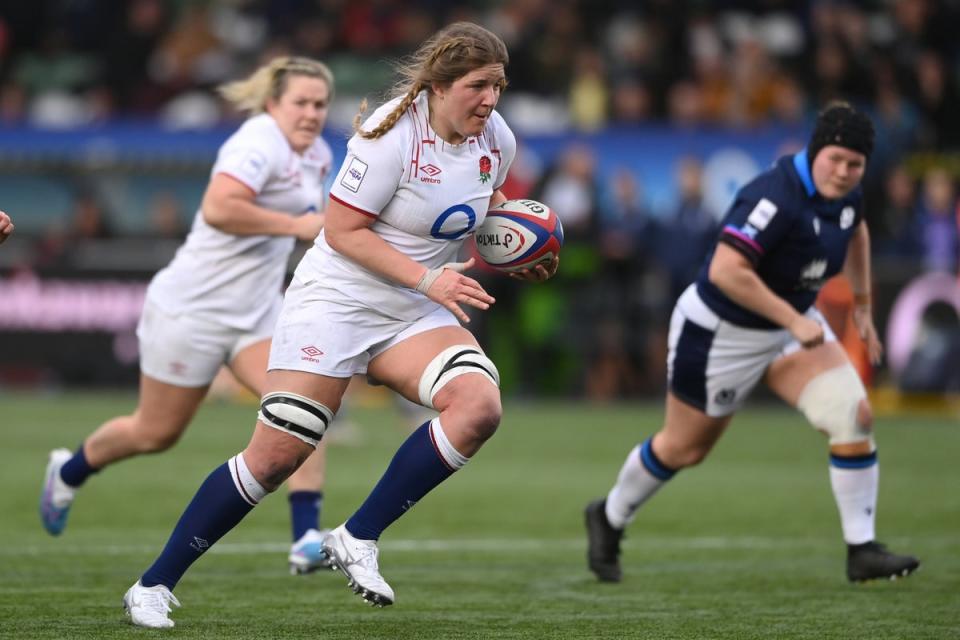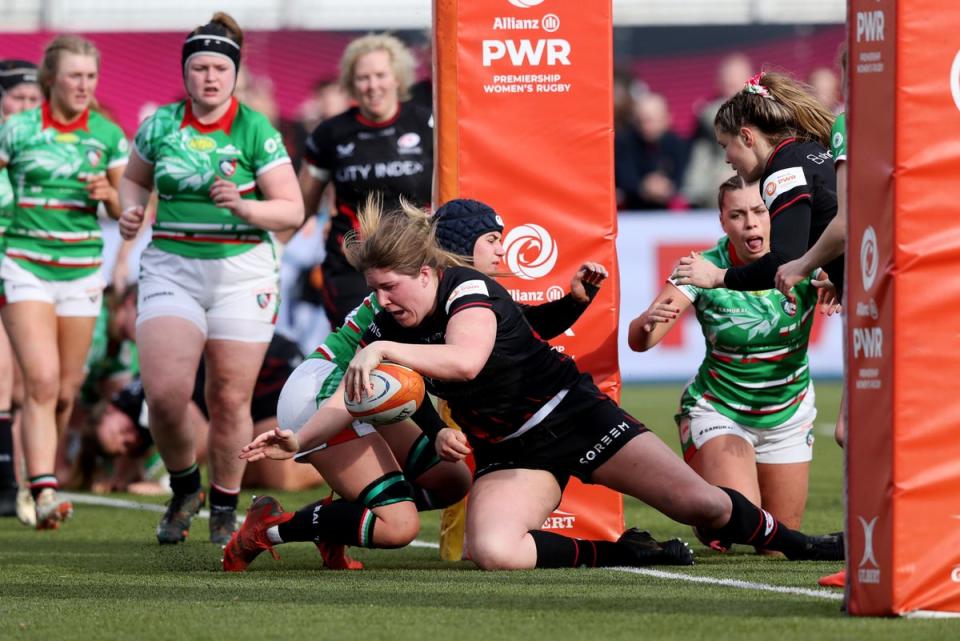
Saracens head coach Alex Austerberry has backed Poppy Cleall to respond positively to losing her Red Roses central contract, but questioned the timing of the announcement of the new deals.
The Rugby Football Union (RFU) confirmed on Monday that 32 players have received England contracts for the 2024/25 season, with a further eight young players handed “transition” deals to bolster the potential options available to John Mitchell.
Exeter flanker Maddie Feaunati and Trailfinders prop Liz Crake have been given their first contracts, with back row Cleall, nominated for World Player of the Year in 2021, the headline omission having been a key figure for the Red Roses over the last few years.
Gloucester-Hartpury full-back Emma Sing and Bristol playmaker Amber Reed also dropped off the contracted list. Like Cleall, they are due to feature in this weekend’s Premiership Women’s Rugby (PWR) semi-finals.
Saracens host Bristol at the StoneX Stadium on Sunday and Austerberry is confident that Cleall will respond to the set-back.

“I’m sure it was a very difficult selection and contract discussion to have,” Austerberry said. “I have no doubt that Poppy will come to the fore in the biggest of moments and biggest of games.
“Not just this semi-final, but in seasons to come. She’s been an incredible player for England and Saracens and I expect her to be an incredible player for both in the future. This is just a little set-back which I am sure she will rectify and show England what she is capable of doing.
“She is a fantastic player, a great character to have in the squad and never far away from the big moments in the big matches.”
Cleall had appeared to be well placed to succeed Sarah Hunter as England’s first-choice number eight after the former captain’s retirement last year, but has dropped down the pecking order since Mitchell’s arrival.
The 31-year-old missed WXV in New Zealand last year due to injury while a knee issue also ended her chances of featuring in the Six Nations.

The Saracen had responded well having been challenged by Mitchell to up her involvements and impact on the game in January, but the emergence of Feaunati, who chose to play for England over the Black Ferns, has effectively left her on the outside looking in with a year to go until the World Cup.
The situation is made more complex by the current women’s rugby landscape which means that those outside of the England set-up do not generally earn enough at their clubs to sustain themselves and have to seek alternative employment outside of rugby.
Given that reality, Austerberry believes the discussions over contracts could have been better timed so as not to coincide with the play-offs.
“I do think we can do better there,” the coach stressed. “I get the challenges around a new coach coming in around the Six Nations and wanting to see players, but I’m not sure the announcement of contracts in the week up to the semi-final is the best place.

“There are three Red Roses who have not been re-contracted – all three of them are involved in a semi-final this week. I think we can do better there. They are not my decisions to make, I just think we can get the timing more improved and aligned.
“I’ve got confidence moving forward having had conversations with [head of women’s performance] Charlie [Hayter] and where the competitions will fall that this will just be a one-off and was a victim of circumstance.”
The new contracts are understood to have been of varying lengths under the framework agreed by the RFU and Rugby Players’ Association (RPA) last summer.
Confirmation of those contracted for 2025/26 is expected to be confirmed before next year’s World Cup in England, which begins on August 22.
Article courtesy of
Source link